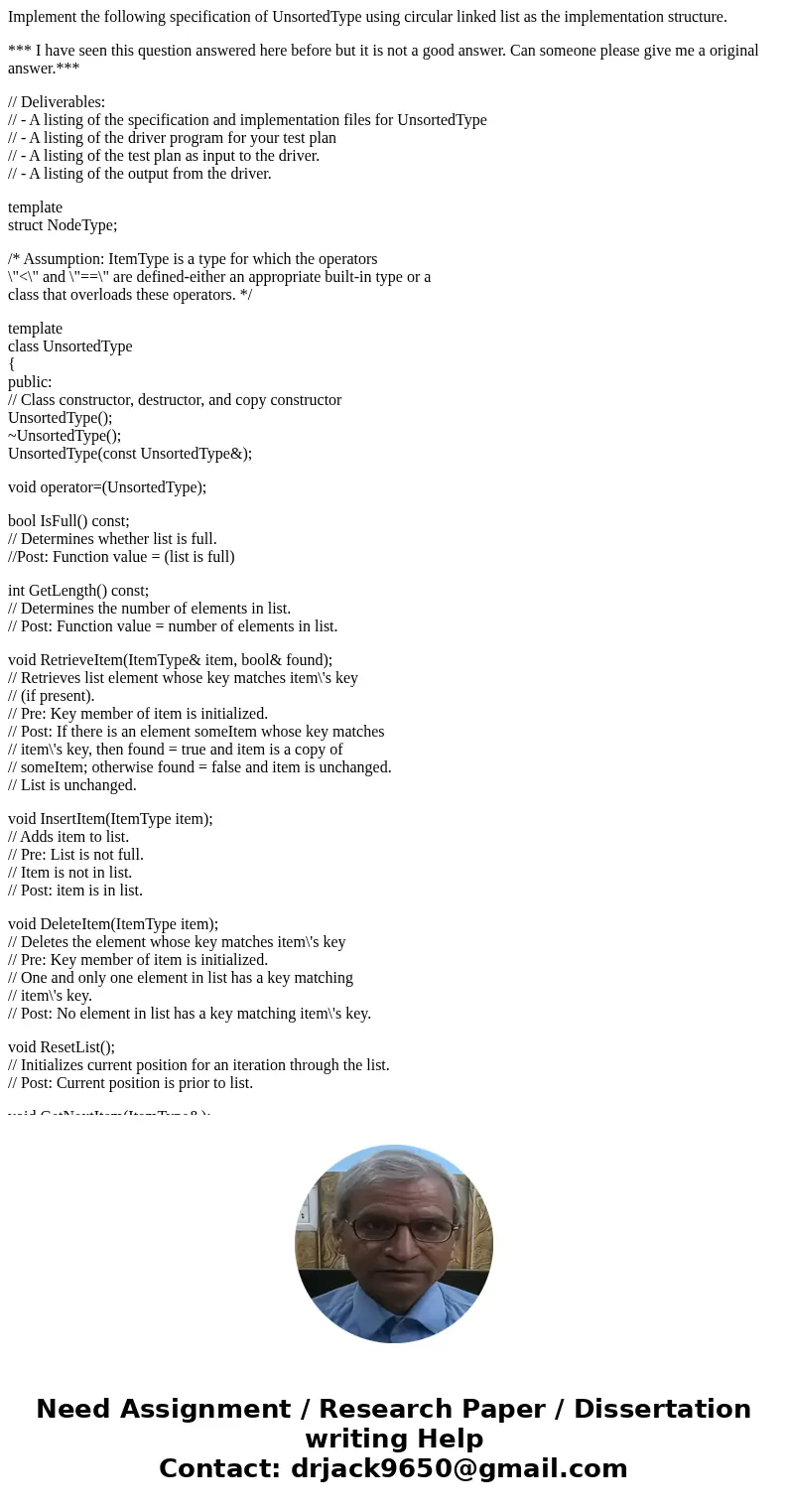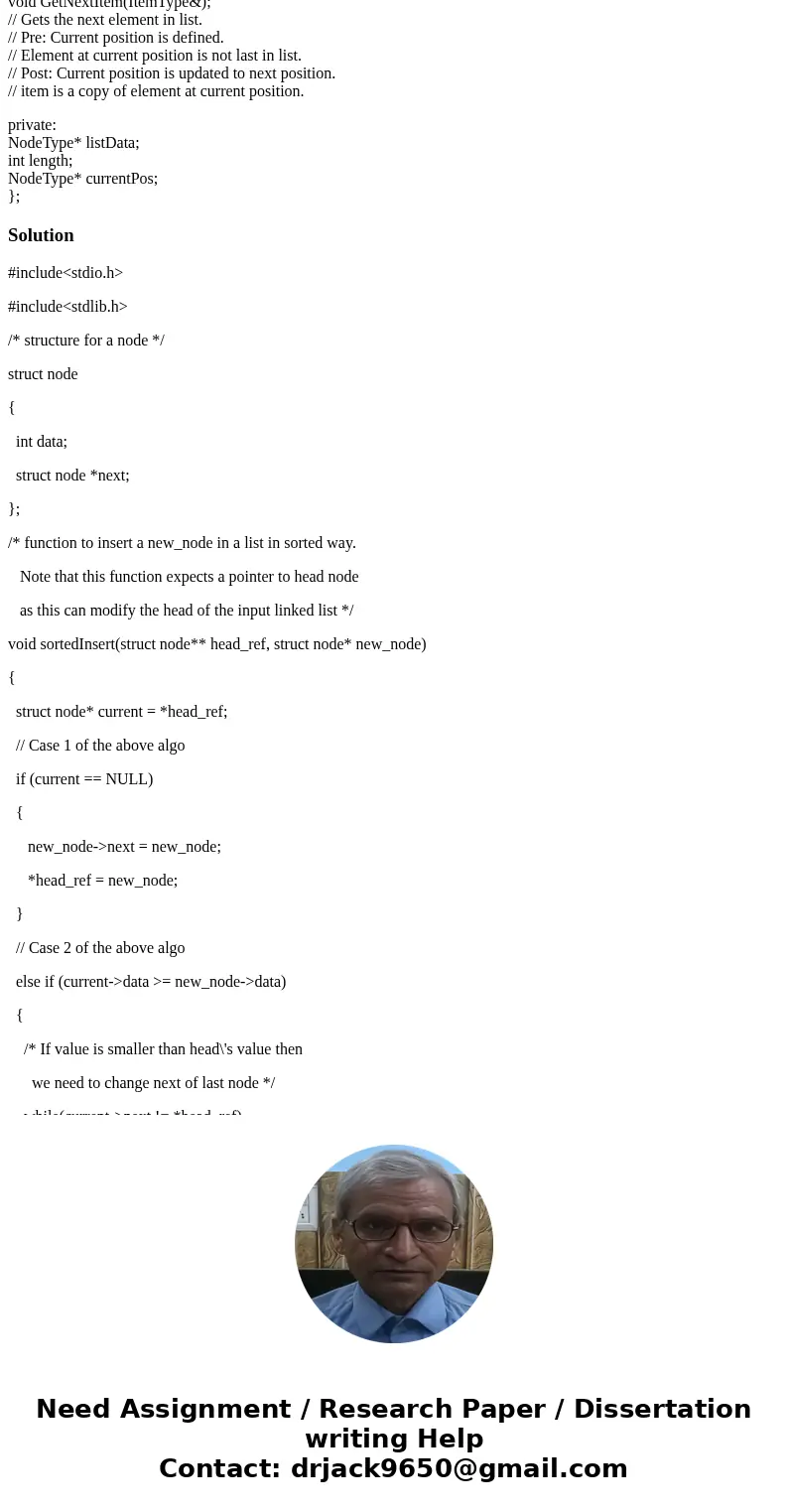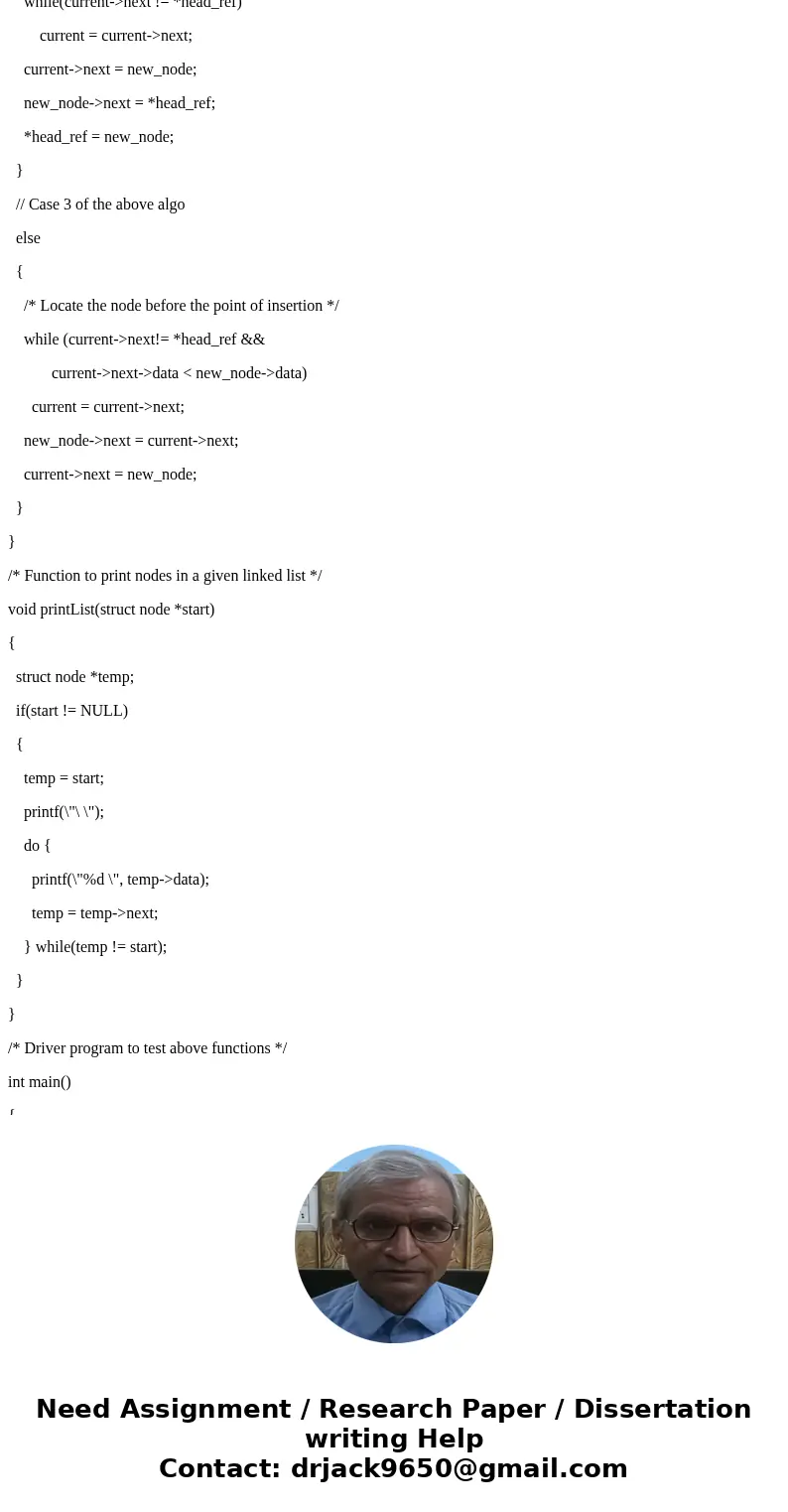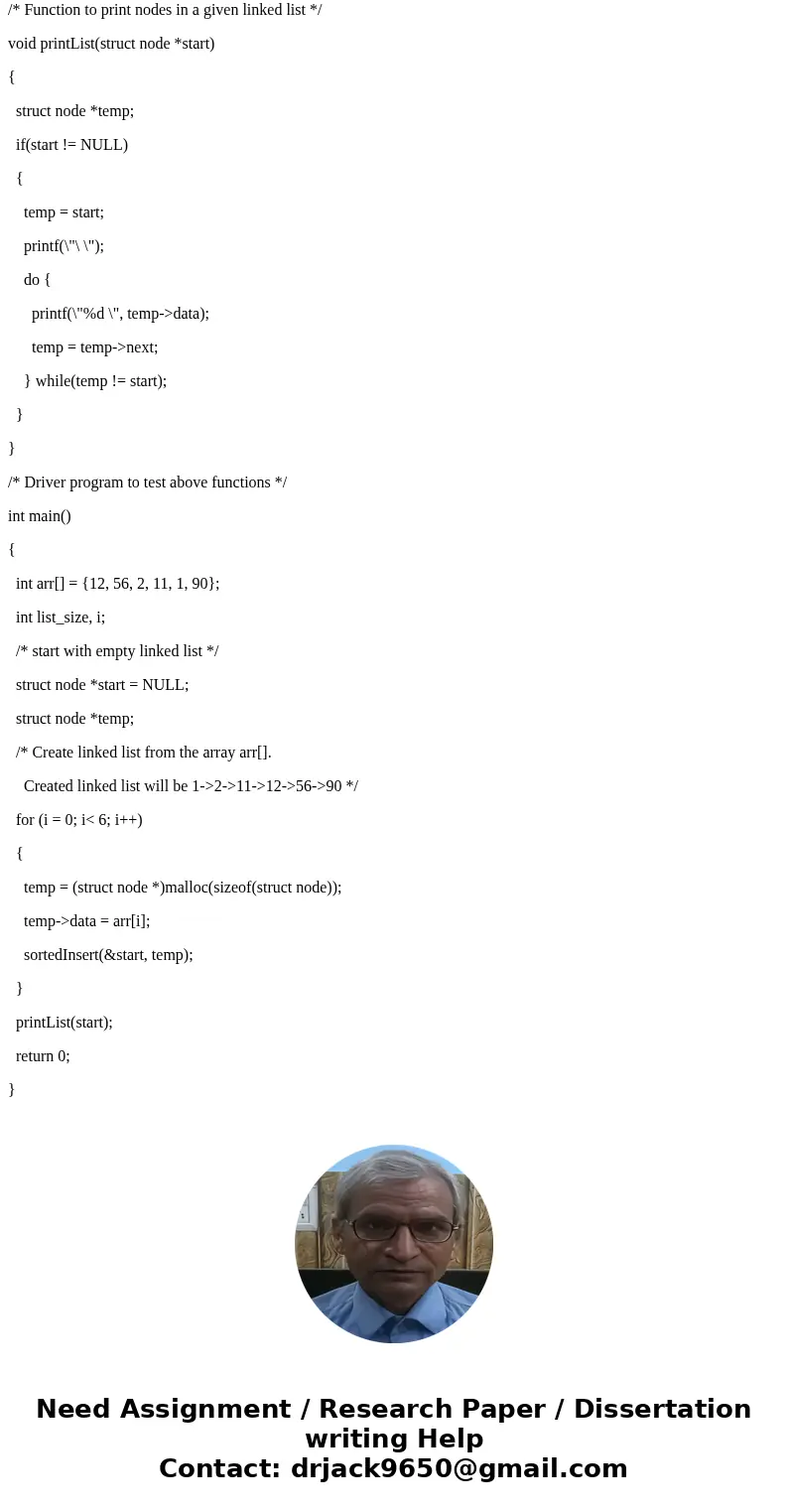Implement the following specification of UnsortedType using
Implement the following specification of UnsortedType using circular linked list as the implementation structure.
*** I have seen this question answered here before but it is not a good answer. Can someone please give me a original answer.***
// Deliverables:
// - A listing of the specification and implementation files for UnsortedType
// - A listing of the driver program for your test plan
// - A listing of the test plan as input to the driver.
// - A listing of the output from the driver.
template
struct NodeType;
/* Assumption: ItemType is a type for which the operators
\"<\" and \"==\" are defined-either an appropriate built-in type or a
class that overloads these operators. */
template
class UnsortedType
{
public:
// Class constructor, destructor, and copy constructor
UnsortedType();
~UnsortedType();
UnsortedType(const UnsortedType&);
void operator=(UnsortedType);
bool IsFull() const;
// Determines whether list is full.
//Post: Function value = (list is full)
int GetLength() const;
// Determines the number of elements in list.
// Post: Function value = number of elements in list.
void RetrieveItem(ItemType& item, bool& found);
// Retrieves list element whose key matches item\'s key
// (if present).
// Pre: Key member of item is initialized.
// Post: If there is an element someItem whose key matches
// item\'s key, then found = true and item is a copy of
// someItem; otherwise found = false and item is unchanged.
// List is unchanged.
void InsertItem(ItemType item);
// Adds item to list.
// Pre: List is not full.
// Item is not in list.
// Post: item is in list.
void DeleteItem(ItemType item);
// Deletes the element whose key matches item\'s key
// Pre: Key member of item is initialized.
// One and only one element in list has a key matching
// item\'s key.
// Post: No element in list has a key matching item\'s key.
void ResetList();
// Initializes current position for an iteration through the list.
// Post: Current position is prior to list.
void GetNextItem(ItemType&);
// Gets the next element in list.
// Pre: Current position is defined.
// Element at current position is not last in list.
// Post: Current position is updated to next position.
// item is a copy of element at current position.
private:
NodeType* listData;
int length;
NodeType* currentPos;
};
Solution
#include<stdio.h>
#include<stdlib.h>
/* structure for a node */
struct node
{
int data;
struct node *next;
};
/* function to insert a new_node in a list in sorted way.
Note that this function expects a pointer to head node
as this can modify the head of the input linked list */
void sortedInsert(struct node** head_ref, struct node* new_node)
{
struct node* current = *head_ref;
// Case 1 of the above algo
if (current == NULL)
{
new_node->next = new_node;
*head_ref = new_node;
}
// Case 2 of the above algo
else if (current->data >= new_node->data)
{
/* If value is smaller than head\'s value then
we need to change next of last node */
while(current->next != *head_ref)
current = current->next;
current->next = new_node;
new_node->next = *head_ref;
*head_ref = new_node;
}
// Case 3 of the above algo
else
{
/* Locate the node before the point of insertion */
while (current->next!= *head_ref &&
current->next->data < new_node->data)
current = current->next;
new_node->next = current->next;
current->next = new_node;
}
}
/* Function to print nodes in a given linked list */
void printList(struct node *start)
{
struct node *temp;
if(start != NULL)
{
temp = start;
printf(\"\ \");
do {
printf(\"%d \", temp->data);
temp = temp->next;
} while(temp != start);
}
}
/* Driver program to test above functions */
int main()
{
int arr[] = {12, 56, 2, 11, 1, 90};
int list_size, i;
/* start with empty linked list */
struct node *start = NULL;
struct node *temp;
/* Create linked list from the array arr[].
Created linked list will be 1->2->11->12->56->90 */
for (i = 0; i< 6; i++)
{
temp = (struct node *)malloc(sizeof(struct node));
temp->data = arr[i];
sortedInsert(&start, temp);
}
printList(start);
return 0;
}




 Homework Sourse
Homework Sourse